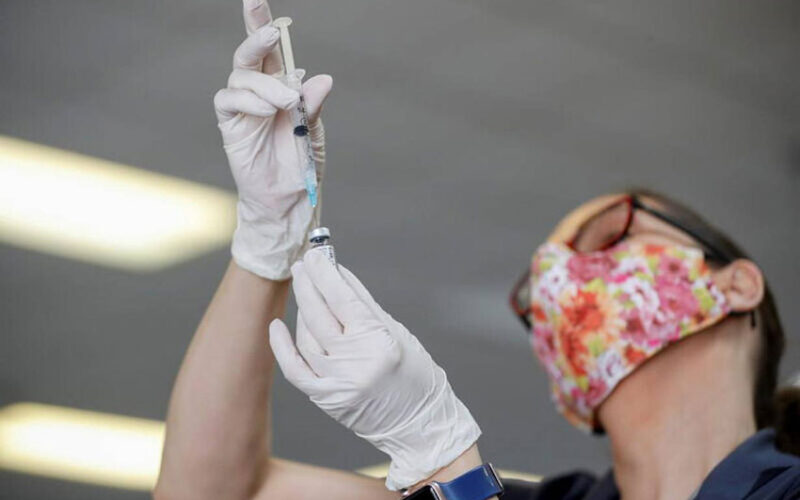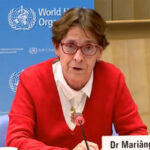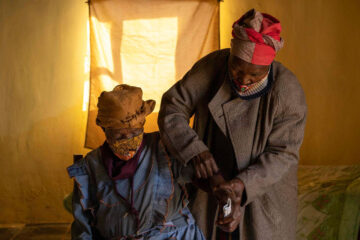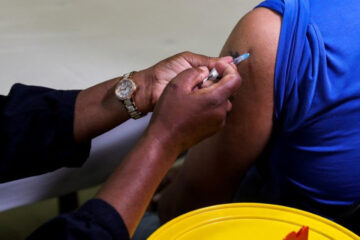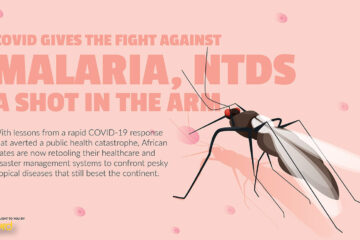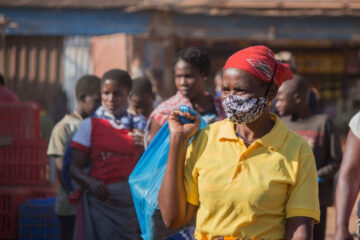LIN TAYLOR
WHEN two little old ladies in bonnets and gloves arrived for a COVID-19 vaccine shot in Florida, health workers sensed something was not quite right.
The women – who turned out to be aged in their 30s and 40s and had “dressed up as grannies” in an effort to get vaccines reserved for vulnerable elderly people – are among a growing number of people trying to cheat or game the system to get early access to scarce shots.
VIP vaccine access scandals have also forced the resignation of ministers in Argentina and Peru this week.
But fines and high-profile dismissals have not deterred some of the world’s most privileged from gaming the system: securing, often through nefarious means, coveted vaccines seen as golden tickets to health and normality.
How widespread is vaccine line-jumping and what can be done to deter similar behaviour in the future?
WHERE AND HOW IS VACCINE LINE-JUMPING HAPPENING?
Vaccine cheats appear to the relatively rare as nations prioritise shots for those most in need, but the number of known cases are steadily growing.
In Florida, health officials said the two fake grannies caught at a vaccine distribution hub in Orlando had given false dates of birth – and had apparently already previously successfully managed to get their first jabs. They were issued with trespass warnings but no further action was taken.
Officials in the state had already moved to tighten residency rules for jabs in an effort to clamp down on an influx of “vaccine tourists” from New York to India.
Others have paid heavier prices for queue-jumping.
Peru’s health and foreign ministers quit and its former president was placed under criminal investigation earlier this week after reports of hundreds of Peruvian officials and others receiving vaccine doses outside of clinical trials and before the national immunization program began.
Argentina’s health minister also stepped down on Friday after reports that at least 10 people had been able to use connections to jump the queue for vaccines, including a journalist who said he had received an early shot after approaching the minister for help.
In Europe, a top army general in Spain and local mayors in Austria were accused of having jumped the queue for shots.
And the founder of a luxury travel company in London made waves last month by offering to fly members who were 65 or older to the United Arab Emirates to receive privately obtained vaccines. (In Britain, the vaccination is only available through the National Health Service.)
Several countries, including Israel, Belgium and Hungary and Denmark, have also said they are planning to vaccinate their athletes ahead of the Tokyo Olympic Games, which are due to open on July 23 after being postponed because of the pandemic.
The International Olympic Committee has said that it is not in favour of athletes jumping the vaccines queue.
WHY DOES IT MATTER?
Well-connected individuals are acquiring vaccines – even though they meet no current criteria to join the front of the line – at a time when many health care workers have yet to be vaccinated.
Failing to put the most vulnerable at the front of the line for coronavirus vaccines will exacerbate the gaping racial and ethnic disparities that have characterized the pandemic, experts say.
About 200 million doses of the vaccine have been administered worldwide, mostly to health care workers and older individuals, many of whom live in nursing homes.
But there remain vast swathes of the global population, particularly in poorer countries, that have not started vaccination programmes nor have they secured any vaccines due to the limited supply.
Some African leaders have accused rich countries of hoarding vaccines – queue-jumping on a grander scale – and are calling for a fairer distribution of shots.
WHAT IS BEING DONE TO PREVENT QUEUE JUMPING?
Government and health officials have publicly condemned queue jumping, with Britain’s interior minister calling the behaviour “morally reprehensible” and refusing to rule out fines for those making fraudulent vaccination bookings.
Resignations of high-profile individuals accused of getting or enabling queue-jumping may act as a deterrent. And a millionaire couple who travelled to a remote Canadian community to receive a coronavirus vaccine meant for vulnerable Indigenous people were hit with a $2,300 (US$1,800) fine for breaking public health rules. But around the world, there is relatively little policing of vaccine queue-jumping, with people largely following the rules.
Bribes, opportunism and abuses of power are obvious challenges, and places like Florida have now implemented residency checks to ensure tourists do not cheat the system.
Interestingly, unlike other countries, Indonesia is vaccinating its working population first, rather than the elderly, to revive its economy and reach herd immunity fast.
This strategy is possibly removing the incentive for younger and healthier people to jump the vaccine queue since they are the ones being prioritised.

